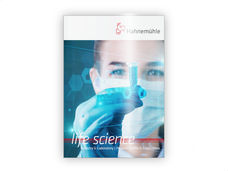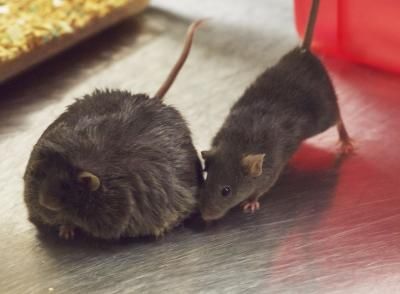A step closer to a cure for adult-onset diabetes
In healthy people, exosomes – tiny structures secreted by cells to allow intercellular communication – prevent clumping of the protein that leads to type 2 diabetes. Exosomes in patients with the disease don’t have the same ability. This discovery by a research collaboration between Chalmers University of Technology and Astrazeneca takes us a step closer to a cure for type 2 diabetes.
Proteins are the body’s workhorses, carrying out all the tasks in our cells. A protein is a long chain of amino acids that must be folded into a specific three-dimensional structure to work. Sometimes, however, they behave incorrectly and aggregate – clump together – into long fibres called amyloids, which can cause diseases. It was previously known that type 2 diabetes is caused by a protein aggregating in the pancreas.
“What we’ve found is that exosomes secreted by the cells in the pancreas stop that process in healthy people and protect them from type 2 diabetes, while the exosomes of diabetes patients do not,” says Professor Pernilla Wittung Stafshede, who headed the study.
What we know now is that “healthy” exosomes bind the protein that causes diabetes on the outside, preventing it from aggregating; however, the results do not explain why. We also don’t know if type 2 diabetes is caused by “sick” exosomes or if the disease itself causes them to malfunction.
“The next step is to make controlled models of the exosomes, whose membranes contain lipids and proteins, to understand exactly what component affects the diabetes protein. If we can find which lipid or protein in the exosome membrane leads to that effect, and can work out the mechanism, then we’ll have a good target for development of treatment for type 2 diabetes.”
The study is actually a part of industrial doctoral student Diana Ribeiro’s thesis work, and a collaboration between Chalmers and Astrazeneca.
“She came up with the idea for the project herself,” says Wittung Stafshede, who is also Ribeiro’s academic advisor at Chalmers. “She had done some research on exosomes before and I had read a bit about their potential. It’s a fairly new and unexplored field, and honestly I didn’t think the experiments would work. Diana had access to pancreatic cells through Astrazeneca – something we’d never had access to before – and she conducted the studies very thoroughly, and this led us to our discovery.”
This is the first time that Wittung Stafshede has worked with Astrazeneca.
“We ought to collaborate more. It’s beneficial to them to understand what molecular experiments we can carry out, and it’s valuable for us to be able to put our research into a wider medical-clinical perspective. In the search for a future cure for type 2 diabetes, it’s also good for us to already be working with a pharmaceutical company.”
Original publication
Most read news
Original publication
Diana Ribeiro, Istvan Horvath, Nikki Heath, Ryan Hicks, Anna Forslöw, and Pernilla Wittung-Stafshede; "Extracellular vesicles from human pancreatic islets suppress human islet amyloid polypeptide amyloid formation"; PNAS; 2017
Topics
Organizations
Other news from the department science
These products might interest you

Hahnemühle LifeScience Catalogue Industry & Laboratory by Hahnemühle
Wide variety of Filter Papers for all Laboratory and Industrial Applications
Filtration Solutions in the Life Sciences, Chemical and Pharmaceutical Sectors

Hydrosart® Ultrafilter by Sartorius
Efficient ultrafiltration for biotech and pharma
Maximum flow rates and minimum protein loss with Hydrosart® membranes

Hydrosart® Microfilter by Sartorius
Hydrophilic microfilters for bioprocesses
Minimal protein adsorption and high flow rates

Sartobind® Rapid A by Sartorius
Efficient chromatography with disposable membranes
Increase productivity and reduce costs with fast cycle times

Sartopore® Platinum by Sartorius
Efficient filtration with minimal protein adsorption
Reduces rinsing volume by 95 % and offers 1 m² filtration area per 10"

Polyethersulfone Ultrafilter by Sartorius
Reliable filtration with PESU membranes
Perfect for biotechnology and pharmaceuticals, withstands sterilisation and high temperatures

Polyethersulfone Microfilter by Sartorius
Biotechnological filtration made easy
Highly stable 0.1 µm PESU membranes for maximum efficiency

Get the life science industry in your inbox
By submitting this form you agree that LUMITOS AG will send you the newsletter(s) selected above by email. Your data will not be passed on to third parties. Your data will be stored and processed in accordance with our data protection regulations. LUMITOS may contact you by email for the purpose of advertising or market and opinion surveys. You can revoke your consent at any time without giving reasons to LUMITOS AG, Ernst-Augustin-Str. 2, 12489 Berlin, Germany or by e-mail at revoke@lumitos.com with effect for the future. In addition, each email contains a link to unsubscribe from the corresponding newsletter.


















































